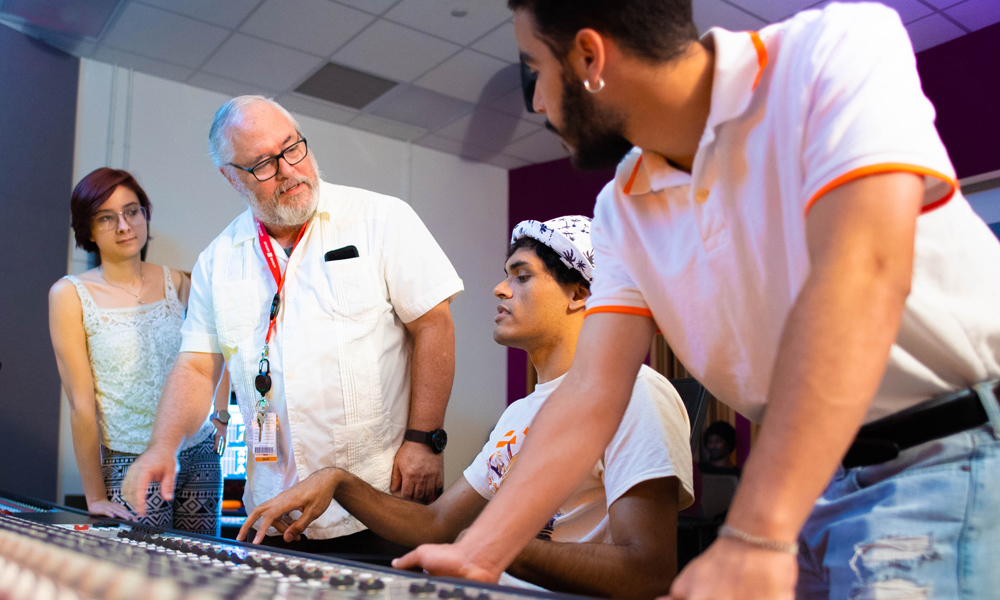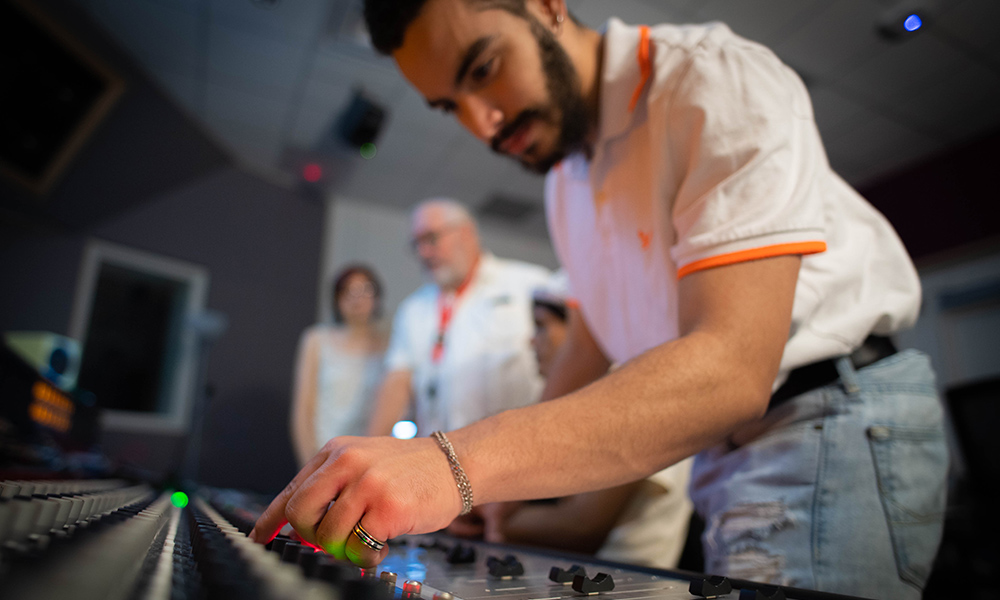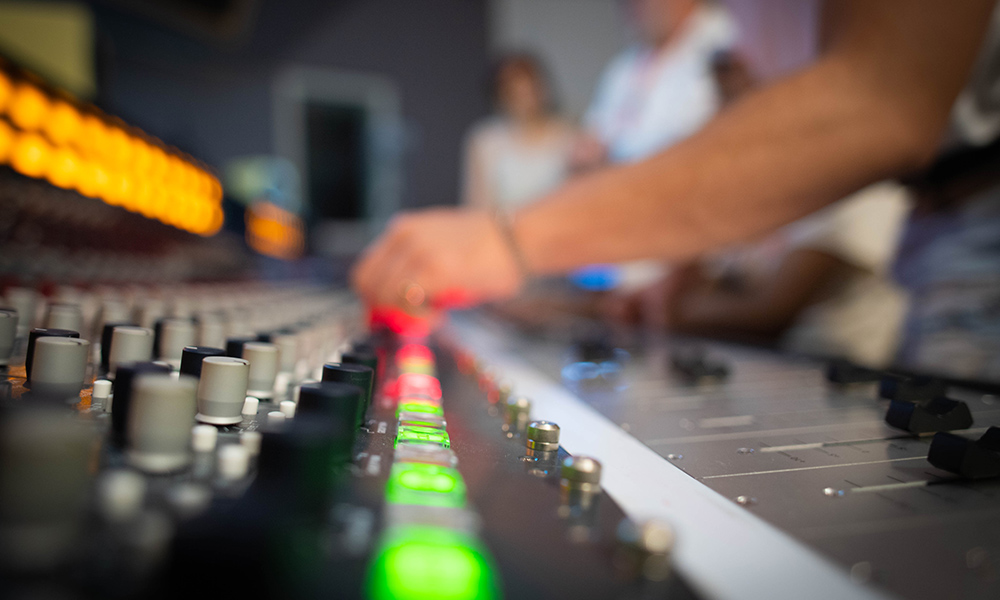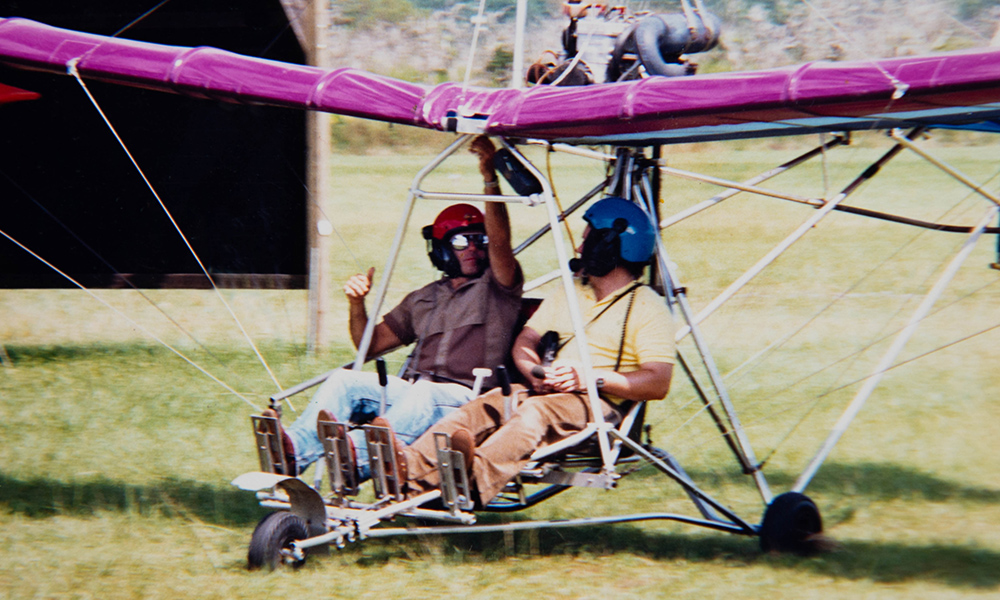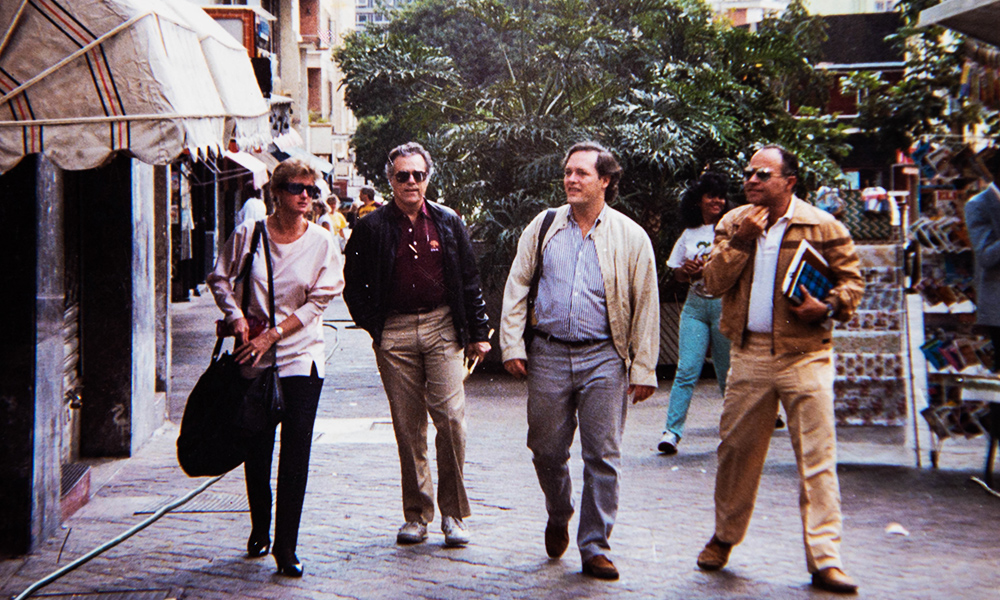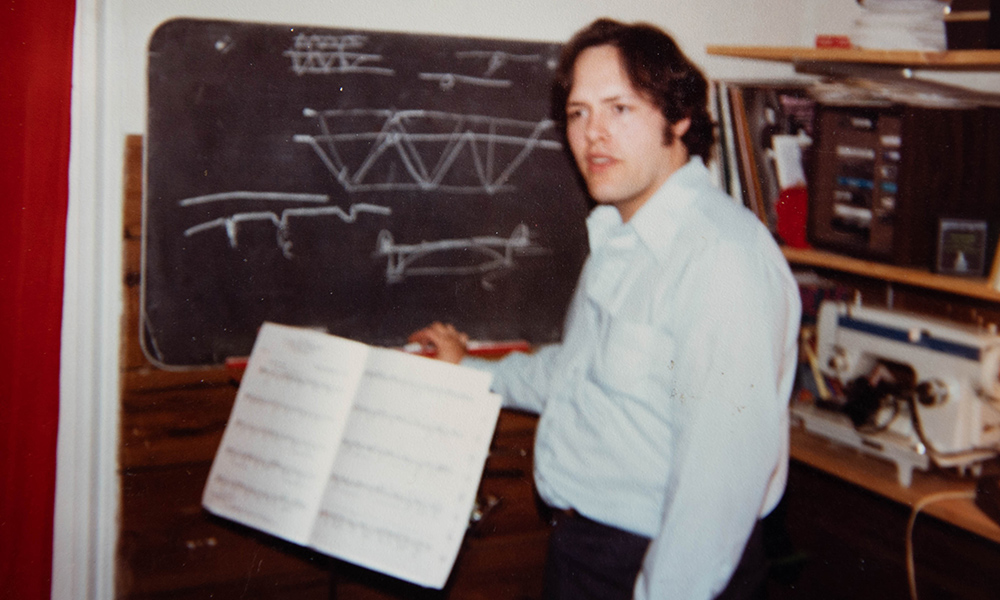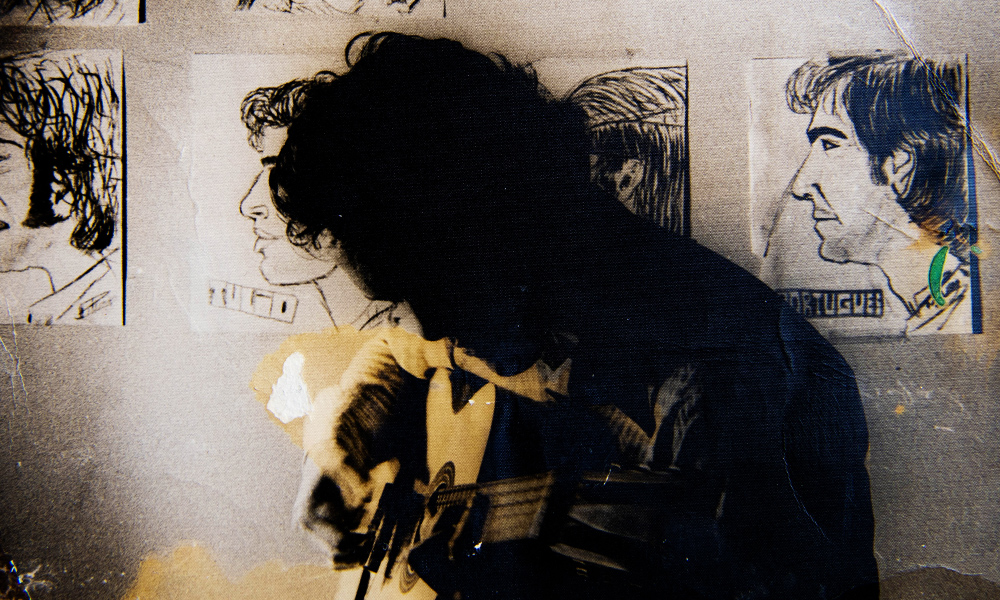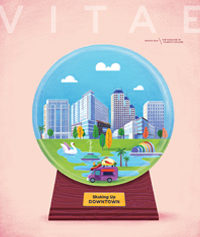“It’s the sound technology industry, which includes music, not the other way around,” said Valery, director of the program that offers specializations in sound technology as well as music performance and sound for students interested in pursuing careers in music production, sound mixing, audio engineering and sound design. In addition to music production careers, Valery points to big career growth potential in other aspects of sound technology. “In live shows is where musicians make money,” Valery said. “So the opportunities for live sound engineers are growing. And where the opportunities are really growing is production for audio books, sound for podcasts and, because of the explosion in streaming services, in sound for film, television and video games.” Especially the latter, he said. “The video game industry is a lot larger than the film and music businesses combined,” Valery said. Another big growth area is in sound technology, Training and Simulation, he said. “We are the hub of that industry,” Valery said. “People don’t realize that agencies like the FBI and the CIA all have sound engineers. We have graduates working in every aspect of the sound technology field.” At Valencia College, students gain experience in a state-of-the-art $13.5 million Film Production and Sound Technology building that opened in 2017 on East Campus. The 30,705 square foot building features a 125 seat screening theater, two high-resolution digital projectors, and an immersive mixing and dubbing room equipped with Dolby Atmos-certified technology boasting 31 speakers and three subwoofers capable of producing 128 simultaneous sounds. “It’s the new standard in sound anywhere in the world,” Valery said of technology available in less than a handful of colleges nationwide. The program also offers an opportunity for hands-on music business experience through FlatFoot Records, the college’s student-run record label. With area internship possibilities limited, the label was formed at the suggestion of recording industry veteran Bruce Hensal, a program adjunct professor, Valery said. “Bruce suggested we create a course that emulates the way a record company works,” Valery said. “We received a grant and started a record label that became a music production course.” Hensal, a studio veteran whose credits include work as front-of-house sound engineer for legendary concert promoter Bill Graham at the Fillmore West and staff engineer at Criteria Recording Studios in Miami, is impressed with the Valencia College program, he said. “Raul has assembled a world-class faculty, facility and educational program that manages to be current while maintaining links to the classic era of recording,” Hensal said. Those links include an album of classic hits from 1967-68 recorded to celebrate the college’s 50th anniversary in 2017. Valery spearheaded the project with contributions from students and faculty from the sound technology program and elsewhere in the School of Arts and Entertainment. It was a throwback to Valery’s own introduction to music as a pre-teen in Venezuela. “When I was seven years old or so, I fell in love with records,” Valery said. “By the time I got out of high school, I had more than 2,000 vinyl records. I knew I wanted to work on making records.” Along the way, Valery, 64, also became a musician, studying classical and flamenco guitar, clarinet, saxophone and Spanish bagpipes at the conservatory level in Venezuela. He also became a huge Beatles fan (“I still have Beatlemania,” he said) and Miles Davis devotee. At age 17, he hosted a radio show in Venezuela, “Viva el Jazz.” After earning a degree in electrical engineering in Indiana, Valery moved to Los Angeles as a protégé of industry veteran Sherman Keene, a favored engineer of Frank Zappa and author of a seminal textbook on audio engineering. In Los Angeles, Valery assisted at a Zappa recording session in the early 1980s. “People say, ‘You worked with Frank Zappa?’ I say, ‘No, I got him coffee’,” Valery said, chuckling. Valery arrived at Valencia College nearly 19 years ago, recruited to lead the sound and music technology program by Ralph Clemente, the revered longtime film program chair who passed away in 2015. In his current students, Valery also sees a devotion to the resurgent format of vinyl records. “Really, what they love is records,” Valery said. “About 80 percent of our students do not play a musical instrument. They are not really into being musicians, but they are into the sound.”//BY JIM ABBOTT
Although his long career as an electronics engineer started with a passion for music, Valencia College professor Raul Valery stresses that the music industry is now only one of many career options for students in the college’s sound and music technology program.
It’s the sound technology industry, which includes music, not the other way around.”
By the time I got out of high school, I had more than 2,000 vinyl records. I knew I wanted to work on making records.”
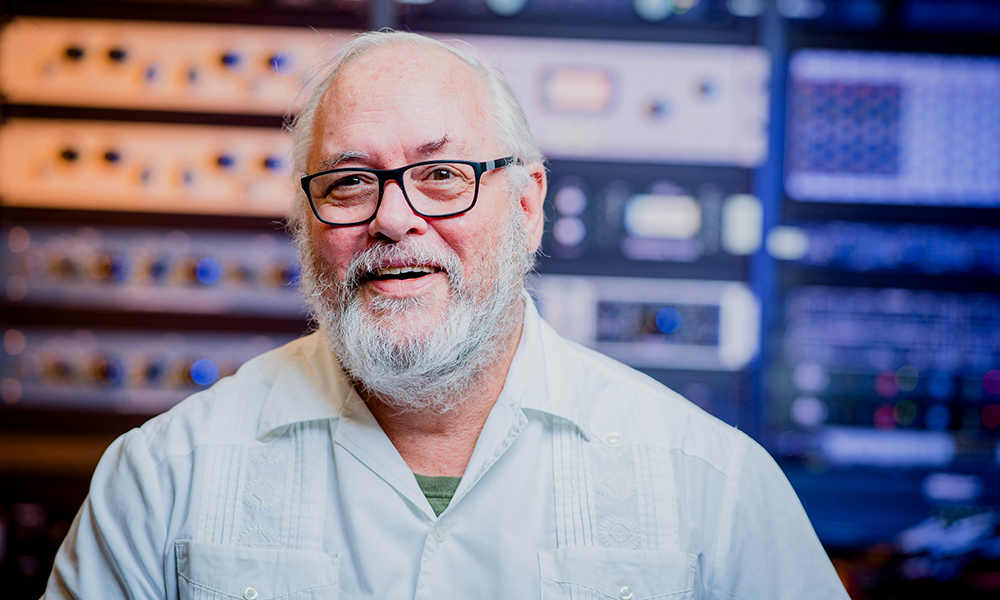
Although music recording studio jobs aren’t the major growth area in sound technology, Valencia College professor Raul Valery maintains that such jobs still provide the foundation for work in other industry fields.
HERE’S HIS TOP 5 LIST OF ATTRIBUTES REQUIRED TO BE A GOOD SOUND ENGINEER:
1. Critical listening.
“Most people are not paying attention to the density, the frequency of sound, but you need to listen critically,” Valery said. “That’s something you develop. You’ve got to have good ears.”2. A sense of rhythm.
“It’s obvious that you would need this in recording music, but even in working on audio books or sound effects, there’s a rhythm to sound,” Valery said. “It must flow. It’s not just musical rhythm.”3. Reliability.
“You have to be reliable,” Valery said. “You cannot show up late. You’ll find that a lot of sound engineers are low-key, not very flashy. You’ve got to understand that you’re not the star. You’re making the star shine brighter.”4. Tolerance.
“You need to be extremely, extremely tolerant,” Valery said. “You must be able to understand that not everybody is like you. The world is extremely diverse and the entertainment industry is more than anything else. You can’t say, ‘I only do rock ‘n’ roll.’”5. Signal flow.
“This is a technical skill, the No. 1 technical skill,” Valery said. “You need to be able to understand the audio signal and how it goes from one place to the other. That’s the key to being an audio engineer. That is the most important part of it.”

